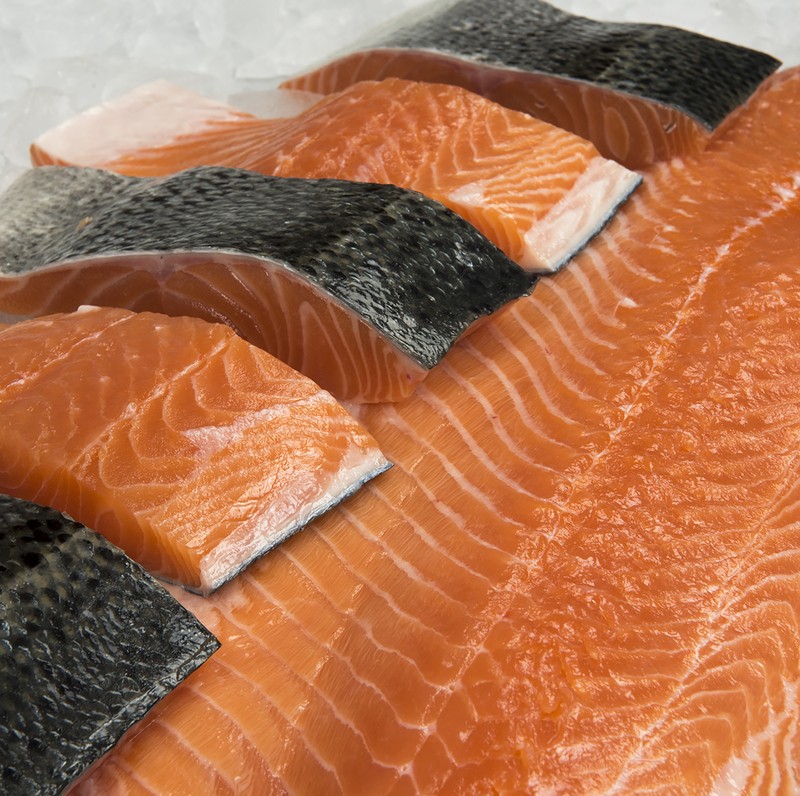
Product #: 11140F
Scientific Name: S. trutta Linnaeus
Country of Origin: United Kingdom
$12.99 /LB (minimum: 1 LB)The vast majority, over 99%, of Atlantic salmon available in the commercial market is farmed. Farmed salmon have a milder, more delicate flavor than wild salmon. Their flesh is moderately firm and somewhat oily, though less so than wild Chinook (king) salmon. The color varies from orange to pinkish orange based on the amount of pigment added to the feed (not a dye added to the flesh of the fish as many people believe), which is meant to mimic the natural pigments in the prey species that wild salmon consume.
Atlantic salmon are native to the northern Atlantic Ocean, but are farmed in more than a dozen countries around the world including places where it is not native.
Salmon aquaculture in Canada has advantages and disadvantages. The species being farmed is typically Atlantic salmon, which is native to the Atlantic coast but not the Pacific coast. In both areas salmon are raised in open net pens and cages. Escapes of farmed salmon do occur and can threaten wild populations, especially in the Atlantic through interference with reproduction and a reduction in genetic diversity in an already struggling wild salmon population. Fish waste is released directly into the environment, though environmental assessments document baseline ecosystem health before farming operation begin, and farm sites lie fallow between harvest and restocking. Salmon are dependent upon a high protein diet but Canada has made great strides in substitution of agricultural proteins and oils for fishmeal and fish oil. Canadian operations have a historically high rate of antibiotic usage, sea lice infestations are a growing problem and use of chemical treatment is increasing.
This item has been added to your cart
Loading...